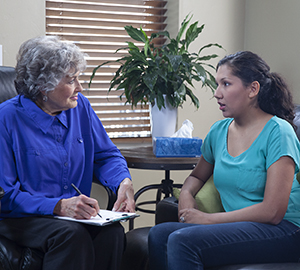Understanding Obsessive-Compulsive Personality Disorder (OCPD)
Obsessive-compulsive personality disorder or OCPD is a personality disorder. People with OCPD have a very strong need for order, perfection, and control. They pay an unusual amount of attention to details, lists, organization, and schedules. This can lead to routines and rules for ways of doing things, for themselves and the people around them. They are perfectionists and may feel worried or angry when things don't seem right. This can cause them great distress. Because of this, they are afraid to let other people do things in case they do it wrong. People with OCPD think actions and beliefs are either completely right or completely wrong. They often feel they are always right. OCPD is not the same as obsessive-compulsive disorder (OCD), but they can occur together.

Causes
No one knows what causes this disorder for certain. Most likely, both genetics and a person’s environment and experiences play a role. OCPD is more common among people who have a close relative with the disorder. It's also more common in men. Other mental health issues may be present. These include depression and an alcohol use disorder. It may occur when certain brain chemicals are out of balance.
Symptoms
A person with OCPD has symptoms of perfectionism that usually start in the teen years or early 20s. This may get in the way of the person's ability to complete tasks because their standards are so high. They may withdraw emotionally when they are not able to control a situation. This can interfere with their ability to solve problems and form close relationships.
Other signs of OCPD may include:
-
Over-devotion to work
-
Lack of flexibility
-
Lack of generosity
-
Not wanting to let other people do things
-
Not willing to show affection
-
Preoccupation with details, rules, and lists
-
Not being able to throw things away, even when an object has no value
Exams and tests
There is no physical test for OCPD. It's diagnosed based on a psychological evaluation. A healthcare provider will consider how long and how severe the person's symptoms are. A person doesn't need to have all of the symptoms of OCPD to have this personality disorder.
Treatment
Talk therapy, such as cognitive behavior therapy (CBT), is thought to be the most effective treatment. Medicines called selective serotonin reuptake inhibitors (SSRIs) may help reduce anxiety and depression. In some cases, medicines combined with talk therapy are more effective than either treatment alone.
Possible complications
Complications of OCPD may include:
Online Medical Reviewer:
L Renee Watson MSN RN
Online Medical Reviewer:
Marianne Fraser MSN RN
Online Medical Reviewer:
Paul Ballas MD
Date Last Reviewed:
11/1/2022
© 2000-2025 The StayWell Company, LLC. All rights reserved. This information is not intended as a substitute for professional medical care. Always follow your healthcare professional's instructions.